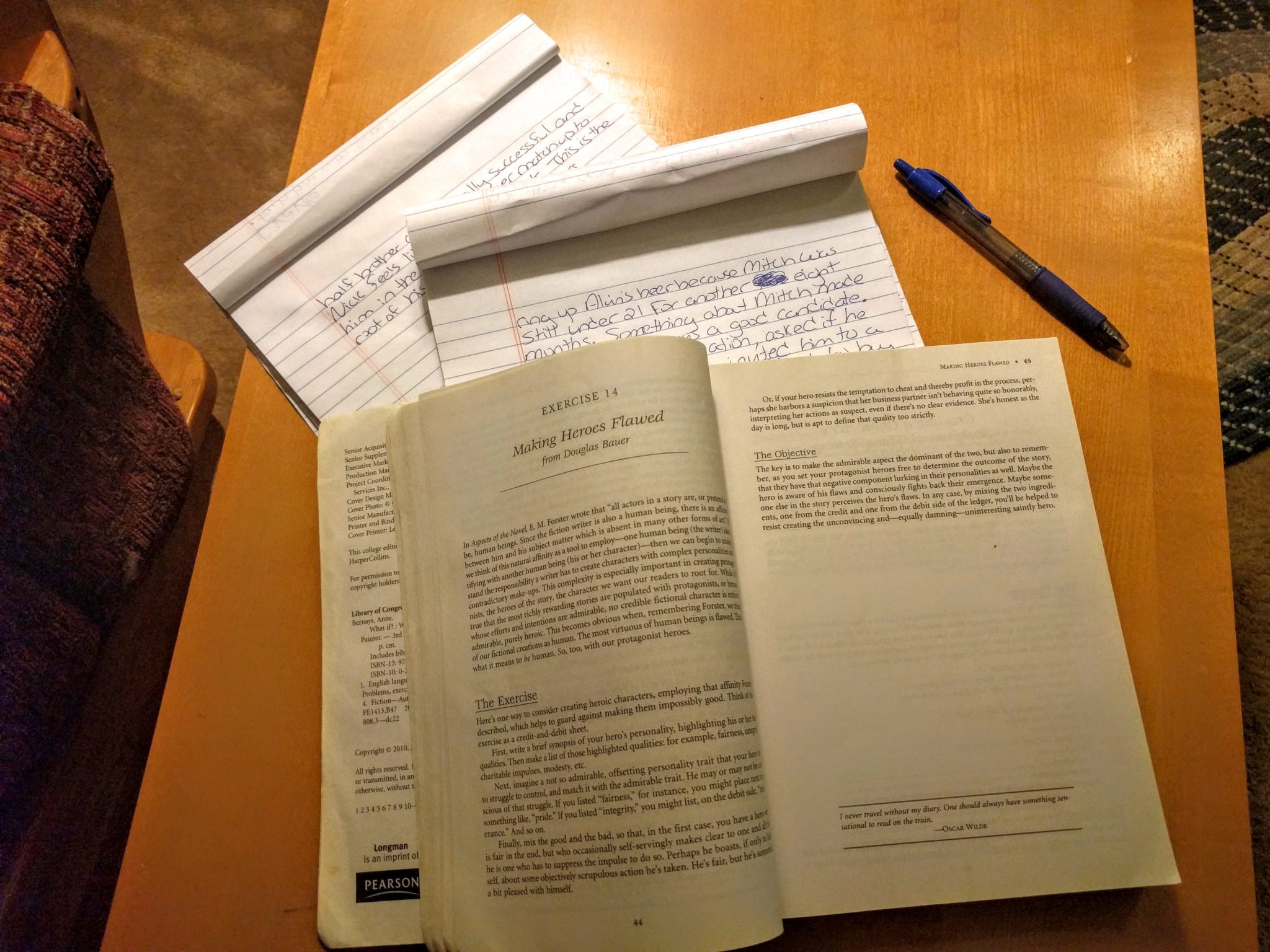A little catch up before we begin for regular readers…if you’re just here for the writing exercise, go ahead and jump to that.
I’m back from a month-long hiatus from the blog, in lieu of some Big Life Changes going on. You’ll probably notice some changes with the blog as well.
I’ve already announced a break from my most popular category I wrote about the most, the Difference Betweens.
You might have also noticed a few categories that didn’t really take off – Tara’s Tutorials With Baking, which was great in theory but time consuming and now I’m going to be moving, and won’t be just down the street from my baking expert sister-in-law.
Then there was Operation Declutter, which is actually still an ongoing process in real life, as it has died on the blog. As I got into it, I realized there were uh, things I was getting rid of that I didn’t really want to broadcast on the internet. I still very, very much believe in decluttering and having less Stuff around, but this has turned into more of a private process.
As I’ve started a new, full time writing job, I’ve stopped my main freelancing gigs, so I’m not writing as much at home anymore. Although I took a break from ErinNudi.com as I got settled into my new, awesome job, oddly enough, I’m actually going to have more time to blog than I did before.
And the whole not freelancing thing also leaves room for another passion of mine: fiction writing.
I wrote a novel a couple years ago, Sober in Connecticut. The whole thing. About 96,000 words. I put it out there to publishers and didn’t get a bite. That will probably be revisited at some point.
Over the course of several months, several months ago, I wrote roughly half of the most difficult short story I’ve ever worked on – about 10,000 words – and had to stop. I hope to revisit this one as well. We’ll call it “The Animal Story” (a working/terrible title).
As I jump back into fiction, I wanted to start fresh with a new story.
I know, I know. It’s classic to start stories and not finish them, and I swear I don’t normally do that and “The Animal Story” is a fluke.
But a story idea just came along recently, like they often do, and I’ve been plotting it out and doing some character development before I dive in…
So I’m bringing back the Writing Exercises category.
As a reminder, we’re following along in What If? Writing Exercises for Fiction Writers. This one is on page 44, if you happen to have the book. Feel free to comment with your own exercises.
The idea behind this exercise is that there is an intimate relationship between the fiction writer and the character, in a way that doesn’t exist in other art forms. The writer has an obligation to create full, three-dimensional characters.
“No credible fictional character is entirely admirable, fully heroic. This becomes obvious when. . .we think of our fictional creations as human.
“Think of this exercise as a credit-and-debit sheet. First, write a brief synopsis of your hero’s personality, highlighting his or her best qualities. Then make a list of those highlighted qualities: for example, fairness, integrity, charitable impulses, modesty, etc.
“Next, imagine a not so admirable, offsetting personality trait that your hero has to struggle to control, and match it with the admirable trait. He may or may not be conscious of that struggle. If you listed ‘fairness’ for instance, you might place next to it something like ‘pride.’ If you listed ‘integrity,’ you might list, on the debit side, ‘intolerance.’ And so on.
“Mix the good and the bad, so that, in the first case, you have a hero who is fair in the end, but who occasionally self-servingly makes clear to one and all that he is one who has to suppress the impulse to do so.
“The objective: The key is to make the admirable aspect the dominant of the two, but also to remember, as you set your protagonist heroes free to determine the outcome of the story, that they have that negative component lurking in their personalities as well.”
I have to actually disagree with part of this – that the good always has to outweigh the bad. Sometimes we have to break the rules to make great characters, like Walter White. But in any case, it’s a good guideline, and the point of it is that no one is all good or all bad.
Here’s mine…
Alvin really cares about those who are close to him. He loves feeling needed and being able to take others under his wing. At the same time, he is able to look up to others and can allow himself to be taken under the wing of someone else. Alvin is one of those people who can make friends everywhere he goes, with anyone.
Highlighted good qualities:
- Extrovert
- Personable
- Charming
- Hardworking
- Dedicated
Not-so-good qualities for each good one:
- He’s an extrovert, but he’s also secretive. He can make friends with anyone, but lets very few inside. And that’s because he has shameful things to hide.
- He’s personable, but he’s also sleazy. The perfect personality can sometimes can be a mask. He’s like a master salesmen.
- He’s charming, but he’s also dishonest, particularly with himself.
- He’s hardworking, but misguided. He doesn’t work hard at the right things.
- He’s dedicated, but immoral, and he doesn’t even realize this about himself. He thinks he can always be a good person later on, after college, after graduation, in The Real World.
There we go! That was an easy one. Sometimes they’re tougher. Stay tuned for more.
